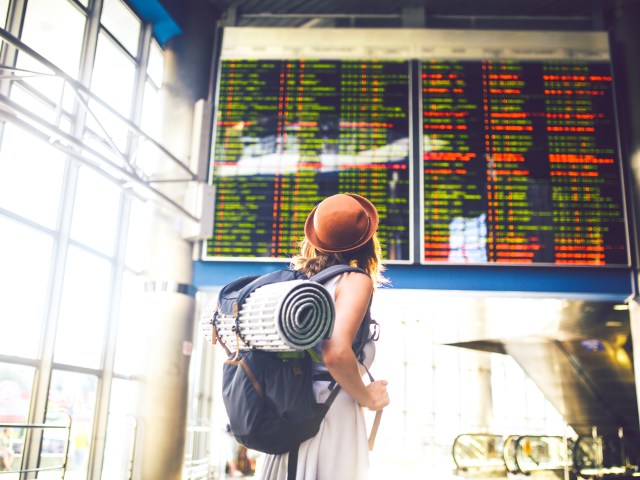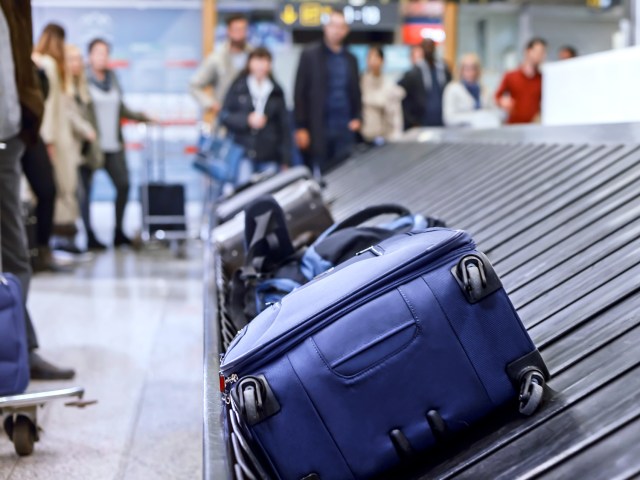Picture this all-too-familiar scenario: You’ve spent months researching the best airfare deal and finding the best flight times, only to have the airline change your schedule, or worse, cancel your flight the day of travel. And when you call the airline, you have to jump through endless hoops to get your money back. Fortunately, those headaches should soon be a thing of the past, thanks to new rules the Department of Transportation (DOT) implemented in October 2024 that offer U.S. flyers a new set of protections for delayed or canceled flights, delayed bags, and other flight disruptions. Here’s a rundown of the new regulations.
Automatic Refunds for Delayed or Canceled Flights

The big news is that, for the first time, the DOT has set a clear definition of what counts as a “significant” flight change. Previously, each airline was allowed to decide on their own policy, creating confusion for passengers and limiting the amount that airlines actually ended up refunding in the case of delayed or canceled flights.
With the new rules, passengers are entitled to a full refund if a domestic U.S. flight is changed by three or more hours (or an international flight is changed by six or more hours) for any reason — not just “controllable” events such as aircraft maintenance or crew availability. The same goes if the flight is outright canceled. The caveat is you won’t get a refund if the airline offers you alternate travel arrangements and you accept and fly the new routing. If you refuse to fly, however, you are entitled to a refund.
The new regulations also set parameters for other significant changes. These include a flight arriving or departing from a different airport, a layover being added to your itinerary, being downgraded to a lower class of service than the one you purchased, or being rerouted to other airports or on other airplanes that are less accessible to those with disabilities.
Refunds for Bag Delays and Other Disruptions

In addition to delays or cancellations for the flight itself, travelers are now protected in the event of delayed baggage. If a checked bag does not arrive within 12 hours following the arrival of a domestic flight or 15 to 30 hours after an international flight (depending on flight length), the passenger is entitled to a refund of any baggage fees. However, the passenger must file a mishandled baggage report with the airline.
The new rules also cover extra fees paid for in-flight services. If you pay extra for seat selection, Wi-Fi, or in-flight entertainment and do not receive those services, the airline has to provide you with a refund.
Travel Credits in Other Circumstances

Let’s say you get seriously sick just days before your flight and wish to reschedule. Often, airlines charge change fees or a hefty fare difference to change your flight on such short notice. But with the new rules, if a medical professional advises you not to travel because of a communicable disease, airlines must provide you with a travel credit or voucher for the amount you paid. (You may have to provide documentation, such as a doctor’s note.) Additionally, if government restrictions in another country prevent you from traveling, airlines are now required to provide a travel credit valid for five years.
New Refund Requirements for Airlines

One of the biggest hassles with refunds for delayed flights is how long the process can take. The new DOT rules aim to improve that experience for passengers by requiring airlines to automatically issue refunds for affected flights, without passengers having to request them.
Airlines are required to issue prompt refunds — within seven days for credit card payments and 20 days for other methods of payment — as well as return the full amount of the ticket price, less any travel already completed. Per the rules, flyers affected by delays or cancellations will also now receive notifications from airlines that explain their rights to a refund.
The Department of Transportation announced its final ruling on April 24, 2024, and the regulations went into effect in October. However, airlines have six months to implement the automatic refund rule and 12 months to implement the travel voucher rule for medical reasons.
More from our network
Daily Passport is part of Inbox Studio, an email-first media company. *Indicates a third-party property.
















